Laverne Cox Talks to TIME About the Transgender Movement
This article was written by Katy Steinmetz and featured on Time.com.
The Orange Is the New Black star on politics, happiness and why genitalia isn’t destiny
On TIME’s cover this week is an unlikely icon: Laverne Cox. Bullied and harassed for appearing feminine while growing up in Mobile, Ala., Cox eventually came out as transgender while living in New York City and took up acting. Now a star on the Netflix drama Orange Is the New Black, she has emerged as a public leader of the trans movement, using her increasingly prominent perch to make the case for equal rights and touring the country giving a stump speech titled “Ain’t I A Woman?” When Cox says it, that refrain is not a question.
Cox spoke with TIME for this week’s cover story, “The Transgender Tipping Point.” Below is a behind-the-scenes video of the cover shoot at her home in New York, and an edited transcript of an interview conducted May 8 in Palo Alto, before Cox addressed an audience at Stanford University.
Who was in your house growing up?
My twin brother and my mother, just the three of us. I never knew my father. He was never married to her mother, he was never a part of my life. It was just my mom, my brother and me.
And what were you like as a child?
I was really creative. I started to dance very young. I loved to dance. I begged my mother to put me into dance classes and finally, in third grade, she did. Tap and jazz but not ballet. She thought ballet was too gay … Throughout all of that, I was very feminine and I was really bullied, majorly bullied. There was this side of me that was this over-achiever that loved learning. But then I was also taunted at school. I was called names. I was made fun of.
Are there any particular instances of bullying that stand out in your memory?
There was this one instance in junior high when I had gotten off the bus and I was chased by a group of kids, which was, you know, pretty normal. They couldn’t really bully me on the bus because the bus driver could see in the rearview mirror, and that wasn’t allowed. But the second we got off the bus, they would try to beat me up. So I’d have to start running, immediately. So that day I was running for my life, basically, and four or five kids caught me. They were in the band. And I remember being held down and hit with drumsticks by these kids. And a parent saw it, the parent of some other student, and called the principal and the principal called my mother and my mother found out about it.
Otherwise you wouldn’t have told her?
No. And I remember being yelled at, because I didn’t tell her and then because I didn’t fight back. I never wanted to fight back. I was scared. I also thought I was above duking it out in the schoolyard with kids. I remember being blamed for having been attacked by a group of kids.
Is there a moment or time you remember first feeling like you might be transgender?
I tell this story about third grade. My third grade teacher called my mom and said ‘Your son is going to end up in New Orleans wearing a dress.’ Up until that point I just thought that I was a girl and that there was no difference between girls and boys. I think in my imagination I thought that I would hit puberty and I would start turning into a girl.
How did your thinking change after that moment in third grade?
Going to a therapist and the fear of God being placed in me about ending up in New Orleans wearing a dress, that was a profoundly shaming moment for me. I associated it with being some sort of degenerate, with not being successful. My mother was a teacher. She was grooming my brother and me to be successful, accomplished people. I didn’t associate being trans, or wearing a dress, with that, or wanting to be a girl with being successful. So it’s something I just started to push down. I wanted to be famous, I wanted to perform. Those things I really, really wanted more than anything else.
Another part of your story you’ve talked about is your grandmother passing away, how you felt like she was looking down on you and disapproving. What happened in that moment?
I was in sixth grade and I was going through puberty. During puberty, the attraction for other boys got really strong. And I learned in church that was a sin. I imagined that my grandmother was looking down on me and that she knew what I was thinking, because she’s in heaven. I just imagined that I was disappointing her and it just was devastating for me. So I went to the medicine cabinet and got a bottle of pills. And took them. And swallowed them. And went to sleep, hoping not to wake up. And I did wake up, with a really bad stomachache. I don’t remember what the pills were. Whatever it was, I thought that they would kill me but they didn’t.
Did you talk to anybody else that night?
Nope. I was very isolated. I didn’t have anyone that I felt close to or that I could talk to. My brother and I were close-ish. But he was dealing with his own stuff. I didn’t really have friends until my junior year of high school. And my mother just had an inability to fully emotionally connect. I think a lot of it was just the stress of trying to take care of two kids by herself. My mom, a lot of her memories of those times, is just that she was really stressed out, trying to figure out how to put food on the table and clothes on our backs … What was the saving grace for me is that I had this great imagination and I was a good student and I loved to perform. The imagination that I used for that creative work was very life-sustaining for me and it continues to be.
How did things change as you got older?
I started trying to find a compromise in terms of gender in high school. I started embracing androgyny. I was just really scared and in a lot of denial. And I wanted to make everybody proud and happy and find a place for myself in the world. The funny thing is being in this androgynous space really wasn’t any better, in terms of perception or reception from people. It was part of my journey that got me to where I am now.
How do you think life might be different for trans kids who are in middle school or high school right now?
There’s a way to connect through the Internet that I didn’t have. So you can connect with people who are like you, who may be in another part of the country. That didn’t exist when I was a kid. I think there are more media representations that young trans people can look to and say, that’s me, in an affirming way. There’s just so many resources out there now that it makes you feel like you’re less alone and gives some sort of sense of, okay, this is who I am and this is what I’m going through, as opposed to being ‘What the f*** is wrong with me?’ That was what I grew up with.
Do you have any lingering feelings like that?
Oh yeah. I absolutely have a lot of work that I have to do around shame, lingering shame from childhood, and childhood trauma. It’s a struggle every day, to stay present, not to become that, you know, eight year old who was bullied and chased home from school. Some days I wake up and it’s like I’m eight years old again. And I’m scared for my life and I don’t know if I’m going to be beaten up that day. I don’t know what mood my mom’s going to be in. That’s intense. But luckily I have tools. I have amazing therapy. And I have support now. I can reach out and talk to people.
The people out there in America who have no idea what being transgender means, what do they need to understand?
There’s not just one trans story. There’s not just one trans experience. And I think what they need to understand is that not everybody who is born feels that their gender identity is in alignment with what they’re assigned at birth, based on their genitalia. If someone needs to express their gender in a way that is different, that is okay, and they should not be denied healthcare. They should not be bullied. They don’t deserve to be victims of violence. … That’s what people need to understand, that it’s okay and that if you are uncomfortable with it, then you need to look at yourself.
Janet Mock [who wrote a best-selling memoir called Redefining Realness] has said that what’s happening in this moment is that trans people are taking more control over their narrative. Would you agree?
Absolutely. We have to listen to people. Folks want to believe that genitals and biology are like destiny! All these designations are based on a penis, however many inches that is, and then a vagina. And that’s supposed to say all these different things about who people are. When you think about it, it’s kind of ridiculous. People need to be willing to let go of what they think they know about what it means to be a man and what it means to be a woman. Because that doesn’t necessarily mean anything inherently. Folks are just really uncomfortable with that sense of uncertainty, or that shift.
Why do you think that makes people so uncomfortable?
We live in an uncertain world and we want to believe that what a man is and what a woman is–I know that. And people don’t want to critically interrogate the world around them. Whenever I’m afraid of something or I’m threatened by something, it’s because it brings up some sort of insecurity in me. I think the reality is that most of us are insecure about our gender. They think, ‘Okay, if there’s this trans person over here, then what does that make me?’ We want to just coast along in a belief system that makes us feel secure, because we are a culture, as Brene Brown would say, that is intolerant to vulnerability. And if we are in a position where we have to begin to question this very basic idea of ‘A man has a penis and a woman has a vagina,’ then that’s a lot of vulnerability.
Telling everyone they have a sexual orientation seems simpler than telling everyone they have a gender identity.
There are so many terms. Facebook just gave us 56 custom genders. The biggest thing is that it’s about listening to individuals, not making assumptions … The reality is that lots of lived experience defies that trapped-in-the-wrong-body narrative. People are like, ‘I’m confused!’ And it’s like, ‘Calm down. Relax. It’s okay. Who is this individual right in front of you?’ … When it comes to terms, trans or gender-nonconforming are two great terms that can encompass a variety of different experiences.
Would you say you’re a happy person now?
Absolutely. Happiness is weird though. I’m so busy and I’m living my dream. I feel like myself and I feel pretty integrated, like the person that I am inside is who the world is seeing, which feels calming. But it’s not like ‘Oooooohhh, I’m a woman now and the world is amazing.’ There’s hardships. There are a lot of struggles still. I’m happy that I am myself and I couldn’t imagine my life if I were still in denial or lying, pretending to be a boy. That seems ridiculous to me. That seems crazy at this point … It’s nice to be done with transitioning.
Where is America when it comes to the acceptance of trans people?
We are in a place now where more and more trans people want to come forward and say ‘This is who I am.’ And more trans people are willing to tell their stories. More of us are living visibly and pursuing our dreams visibly, so people can say, ‘Oh yeah, I know someone who is trans.’ When people have points of reference that are humanizing, that demystifies difference. Social media has been a huge part of it and the Internet has been a huge part of it, where we’re able to have a voice in a way that we haven’t been able to before. We’re being able to write our stories and we’re being able to talk back to the media … We are the reason. And we are setting the agenda in a different way.
One example of setting the agenda is the oft-referenced interview you did with Katie Couric earlier this year, when you explained why focusing on genitalia is misguided.
That felt like a moment when things really shifted. I felt really good about it and I remember thinking, As many people who have been on daytime TV, I’ve never heard someone push back and really talk about the homicide rate in the trans community and talk about the disproportionate discrimination and talk about someone like Islan Nettles, who lost her life just because she was walking down the street while trans. And to shift the narrative away from transition and surgery. I’ve never seen someone challenge that narrative on television before. But in the community, we’ve been talking about this and frustrated for years.
What is your response to people who have fought against trans-friendly laws and bills, like the new California law?
It’s scary to me. There’s a lot of fear mongering. I try to see their side of the story. They think that there are these people who were assigned this at birth, who are going to be infiltrating these spaces and, basically, our girls are going to be unsafe. It’s a thing that stigmatizes trans identities … These opponents don’t really understand who we are. They don’t really understand who trans people are when they’re opposing these bills. Sometimes we’re used as scapegoats too, to get other unfortunate agendas passed. That’s the cutthroat thing that’s going on. Some folks, they just don’t understand. And they need to get to know us as human beings. Others are just going to be opposed to us forever. But I do believe in the humanity of people and in people’s capacity to love and to change. God help me for that.
At the end of an event where you spoke in San Francisco, a woman brought down a six-year-old named Soleil who wrote you a note, asking what to do when bullied at school. And it was a very emotional, electric moment. What was that like up on stage?
That was a deep thing for me. What was really emotional for me is Soleil is six years old. I forget how young six years old is. Soleil is a baby and is being told that they can’t be themselves. I think about when I was that age and my gender was being policed and how deeply painful it was and how it made me feel like I was wrong, at my very core, that every instinct I had, to reach for this and be who I was, was wrong. And seeing Soleil, I just thought about how young six years old really is and how innocent six years old really is. And how we need to protect this child. And we need to protect our children from that and allow them to be themselves.
Source: TIME.
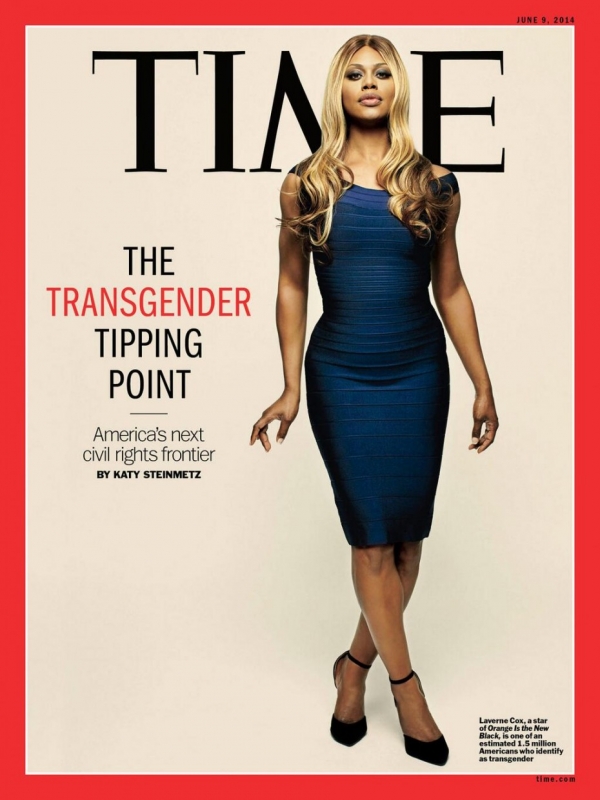
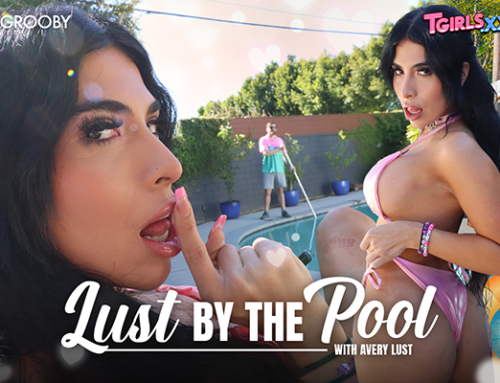
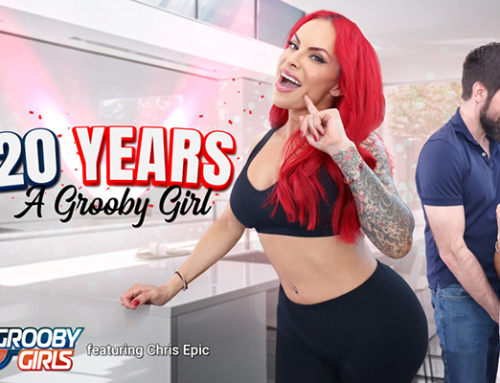


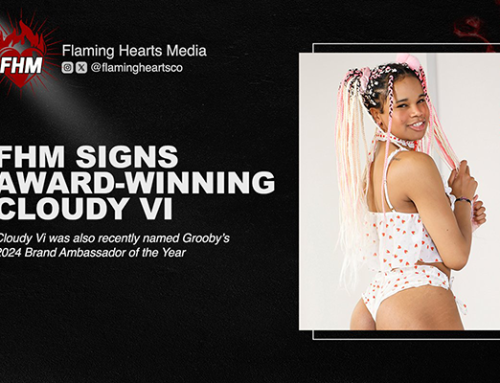
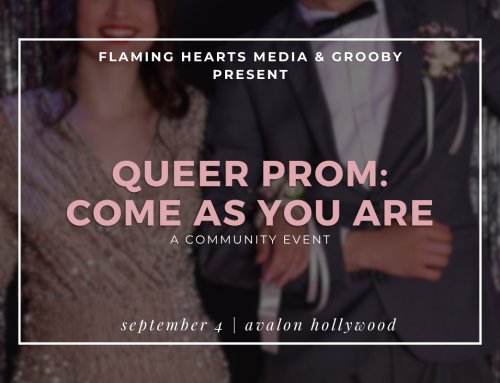

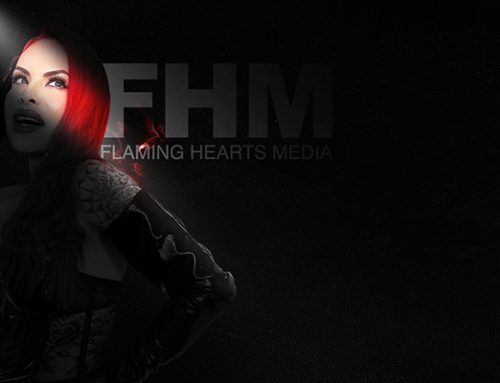

 Any misuse, unauthorised use or copyright infringement of these images whatsoever will be met by criminal and civil litigations WITHOUT FAIL. Comments and problems to Webmaster.
Any misuse, unauthorised use or copyright infringement of these images whatsoever will be met by criminal and civil litigations WITHOUT FAIL. Comments and problems to Webmaster.